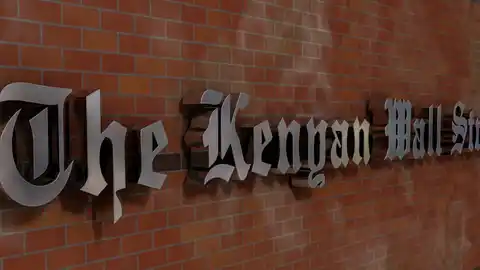US President Donald Trump has defended his administration’s decision to freeze international aid, joking that ‘nobody has ever heard of’ Lesotho yet the southern African country US$8mn in aid.
- •Lesotho, a country of 2.3 million people, has one of the highest HIV/AIDS prevalence rates in the world.
- •The aid cuts have had extensive ripple effects across the world, affecting the operations of multiple local and international organisations.
- •According to the UN, 17 of the 20 countries whose HIV/AIDS interventions are most dependent on US aid are in Sub-Saharan Africa.
“Eight million dollars to promote LGBTQI+ in the African nation of Lesotho, which nobody has ever heard of,” Trump said during a wide-ranging address to a joint session of the US Congress on Tuesday. He called such aid “appalling waste” and said that “young people headed by Elon [Musk]” had already “found hundreds of billions of dollars of fraud.”
Among the other shelved programs in the region that President Trump highlighted was a ‘US$10 million program for circumcision in Mozambique’, ‘US$14 million for social cohesion in Liberia’, ‘$250,000 to increase vegan local climate action innovation in Zambia’, and ‘$42 million for social and behavior change in Uganda.’
Like many developing countries, Lesotho has benefited from USAID and other US aid programs. For example, the country was one of the beneficiaries of USAID’s $85 million global project to promote awareness among women on protecting themselves from the HIV/AIDS pandemic.
Between 2008 and 2023, the US spent between US$ 52.9 billion and US$77.3 billion annually on foreign aid, according to an analysis by Pew Research Center. The aid, mainly funnelled through USAID, was deployed mainly to economic development, humanitarian assistance, and health, in 2023. Sub-Saharan Africa has been the biggest beneficiary among regions after global programs such as UN humanitarian agencies.
The Trump administration slashed USAID’s contracts by 90%, about US$ 60bn, in addition to a 90-day freeze on international aid. While US Secretary of State Marco Rubio has since said aid for ‘life saving’ assistance will be exempted, the classification is still unclear.
The aid cuts have had extensive ripple effects across the world, affecting the operations of local and international organisations. It has led to program shut downs and job losses across Sub-Saharan Africa, and placed policymakers in a fix about how to quickly fill the financing gaps for critical interventions.
In early March, the UN’s World Food Programme (WFP) said it would close its Southern Africa office and consolidate its operations within the East Africa office in Kenya. The US was the largest donor to the global organisation in 2024, pumping in US$4.451 billion of the US$9.75 billion it received that year. Washington has also shut off aid flow to UNAIDS and other international aid agencies.





